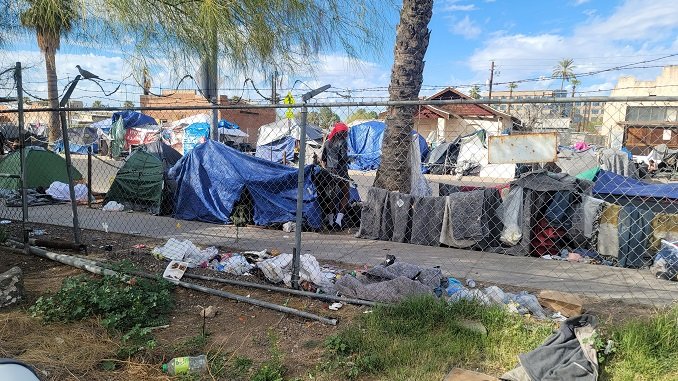Ben Toma
Common Sense Institute Unveils Eye-Opening Report on Proposition 312

By Daniel Stefanski |
Arizonans seeking clarity on a critical ballot measure aimed at addressing homelessness can turn to new insights from a local think tank. The Common Sense Institute Arizona (CSI) recently released a report analyzing the economic and fiscal impacts of Proposition 312, highlighting a notable connection between rising homelessness and decreasing property values across the state.
Proposition 312 seeks to combat Arizona’s homelessness crisis by providing property owners with potential tax relief related to public nuisances, including homelessness and related criminal activities. According to CSI’s findings, property owners in areas plagued by these issues are witnessing a tangible decline in their property values as homelessness continues to escalate.
“The rising rates of crime, homelessness, and drug activity in key areas of Phoenix appear to have taken a toll on property values and overall economic activity,” stated Glenn Farley, Director of Policy & Research at CSI. He emphasized that if Proposition 312 is enacted, local governments may become more proactive in addressing these nuisances, potentially preventing further declines in property values.
The Arizona-based Goldwater Institute expressed its support for Proposition 312 ahead of the November election. The institute criticized local governments for what it views as negligence in maintaining public safety and health standards. In its statement, it underscored that the initiative would relieve taxpayers from the burden of covering the costs associated with local government’s failure to enforce existing laws on public nuisances.
The foundation for Proposition 312 was laid earlier this year when the Arizona State Legislature approved HCR 2023, which allows property owners to apply for tax refunds based on expenses directly related to enforcement failures by local governments. If voters approve the measure in November, it will empower property owners to recover costs incurred due to inadequate enforcement of public nuisance laws.
Senate President Warren Petersen highlighted the ongoing failures of local governments in enforcing laws, citing past issues with a former homeless encampment in Phoenix. He argued that introducing financial incentives could motivate municipalities to enforce the law more diligently.
Key findings from CSI’s report include:
- Problem Increasing: Crime, drug overdoses, and visible homelessness have surged in Arizona since 2019, adversely affecting specific neighborhoods.
- Property Value Loss: Commercial properties in areas troubled by public nuisances have experienced significantly slower rent appreciation—15.7% compared to 30.2% citywide, translating to billions in lost property value.
- Increased Crime: Properties in high public nuisance areas face crime rates that are three to five times greater than the city average, resulting in increased costs for security and damage repairs.
- Impact on Businesses: Elevated nuisance levels hinder property appreciation and contribute to higher vacancy rates, making it difficult for businesses to thrive.
As the ballot measures draw nearer, various organizations have voiced their positions. Supporters include the Goldwater Institute and several businesses, while opposition comes from groups advocating for public safety and housing rights.
For those interested in the intricacies of Proposition 312, the full report from CSI is available for review.


















